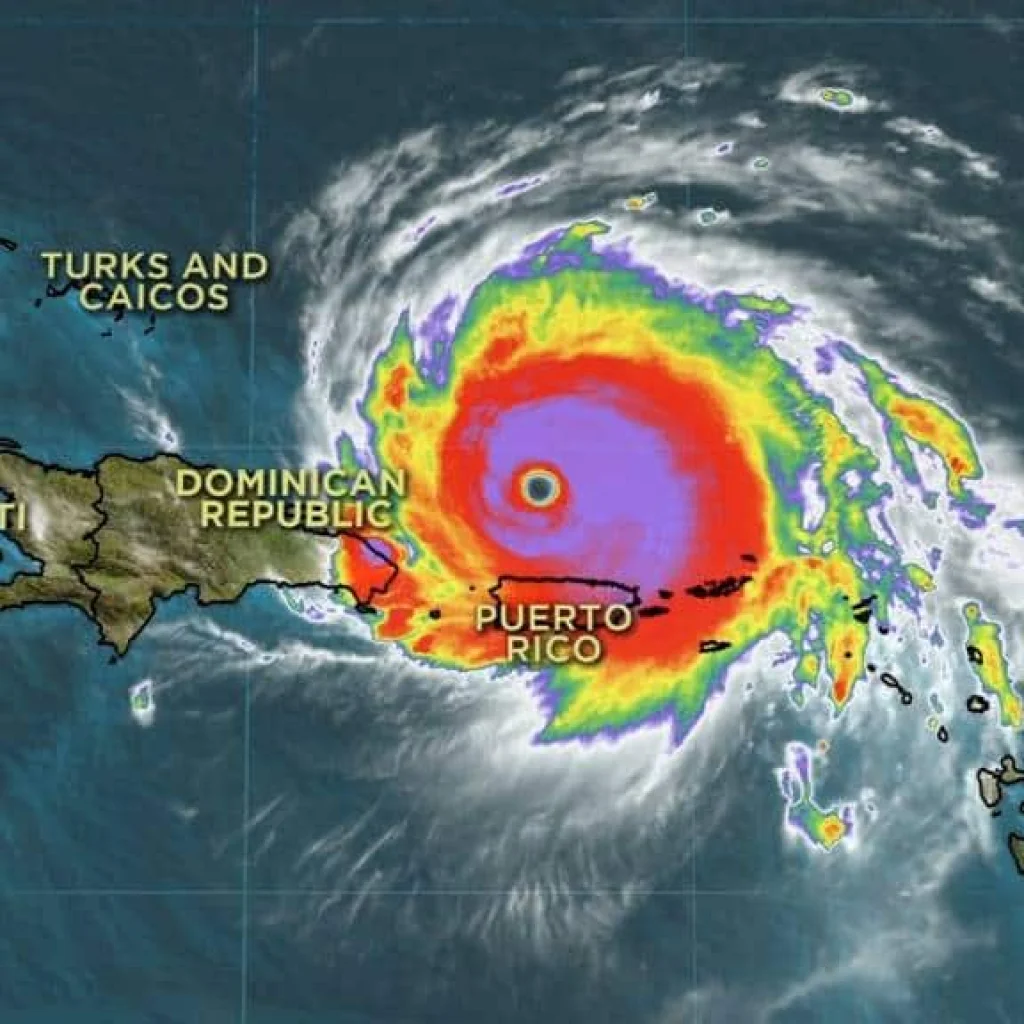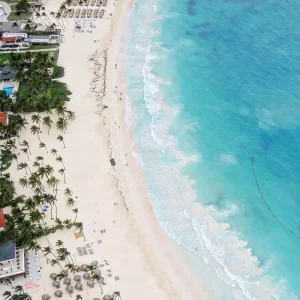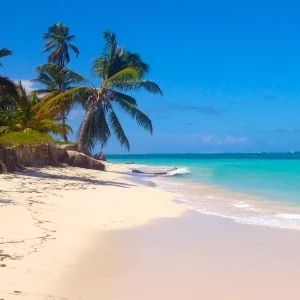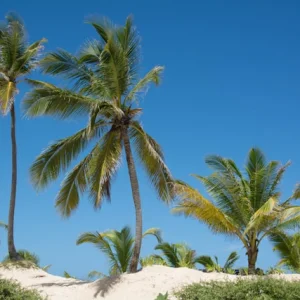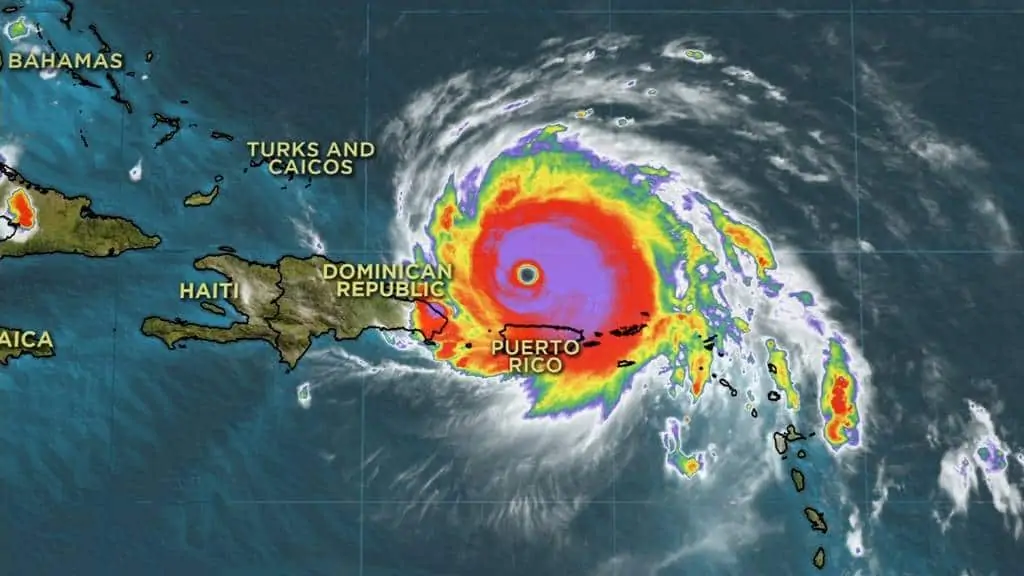
Temporada de huracanes en Punta Cana
La temporada de huracanes en el Atlántico va del 1 de junio al 30 de noviembre, con un pico de actividad entre agosto y octubre. Las tormentas son menos probables al principio y al final de la temporada, pero los viajeros a zonas como Punta Cana deben sopesar de todos modos el riesgo de que un huracán golpee durante un viaje. Muchas guías advierten a la gente que evite Aruba, Bonaire y Curaçao -las «islas ABC»- porque se encuentran en el cinturón de huracanes.
Ese consejo simplifica demasiado la realidad. Aunque elija una isla «más segura», su viaje puede verse perturbado. Si los vuelos se quedan en tierra por los huracanes en lugares como Punta Cana u otras tormentas cercanas, puede perder días de vacaciones a pesar de todo.
¿Por qué visitar durante la temporada baja?
Si ha pasado el invierno soñando con unas vacaciones en el Caribe, ya conoce el atractivo de la temporada baja: menos aglomeraciones, vuelos más baratos, colas más cortas y menores costes de los complejos turísticos. En la República Dominicana, la temporada baja se extiende hasta el verano. Los niños están fuera del colegio, las familias tienen horarios flexibles y los complejos turísticos suelen bajar los precios.
Pero este periodo también trae consigo la temporada de lluvias y se solapa con la temporada de huracanes en el Caribe, lo que aumenta las posibilidades de encontrarse con un huracán en Punta Cana.
6 consejos para proteger sus vacaciones en Punta Cana de los huracanes
1. Compruebe la letra pequeña de las cancelaciones
Revise la política de cancelación de su paquete vacacional. Algunos viajes permiten cambios sin cargos, mientras que otros incluyen un seguro de viaje que protege contra las interrupciones por huracanes. Algunos hoteles solían ofrecer «seguros contra tormentas», pero la mayoría los han eliminado gradualmente. Hoy en día, muchos complejos turísticos sólo ofrecen créditos para futuras estancias. Las aerolíneas suelen renunciar a las tasas de cambio cuando los huracanes dejan en tierra los vuelos, pero esas ofertas suelen ir acompañadas de plazos estrictos.
2. Sepa cómo acortar su viaje
Las cancelaciones de viaje antes de la salida son una cosa. Si un huracán golpea después de que usted haya llegado, la situación se complica. Revise los detalles de su alojamiento y vuelo para conocer sus derechos. Las casas de alquiler rara vez reembolsan a los huéspedes evacuados. Los complejos turísticos pueden ofrecer créditos, pero no reembolsos en efectivo. Las aerolíneas le permiten volver a reservar cuando los huracanes interrumpen los vuelos, pero no cubrirán las noches de hotel extra cerca de los aeropuertos.
3. Adquiera el seguro de viaje adecuado
El seguro de viaje contra huracanes puede reembolsarle los gastos pagados por adelantado si su casa o su destino quedan inhabitables. Si desea un reembolso aunque el complejo no quede destruido, añada la cobertura de «cancelación por cualquier motivo». Tenga en cuenta que los créditos de un complejo turístico cuentan como reembolso, por lo que no podrá reclamar esos fondos dos veces. Confirme siempre que su póliza cubre específicamente las tormentas.
4. Haga planes de emergencia
Los desastres naturales no se pueden controlar, pero puede prepararse. Si no puede cancelar a tiempo, puede que tenga que aguantar la tormenta en un hotel abandonado con servicios limitados. Empaque un pequeño kit con agua, tentempiés, linternas y pilas. Un poco de preparación hace que las situaciones difíciles sean más fáciles de manejar, especialmente si se ve atrapado por un huracán en Punta Cana.
5. Vigile el tiempo
Adelántese a los sistemas de tormentas comprobando las previsiones a diario. Los huracanes traen consigo lluvias torrenciales, inundaciones, vientos fuertes y corrientes de resaca. El Servicio Meteorológico Nacional emite avisos y advertencias, pero también debería seguir las noticias y las aplicaciones meteorológicas. Tormentas anteriores, como el huracán Sandy, dejaron varados durante días a viajeros de todo el Caribe y Norteamérica.
3. Tenga un plan de vacaciones de reserva
Tenga preparado un plan de vacaciones de reserva, sobre todo durante la temporada de huracanes en Punta Cana. Si se espera un huracán, puede cancelar, volver a reservar y reprogramar su viaje para evitar encontrarse con un huracán en Punta Cana.
6. Tenga un plan de vacaciones de reserva
Si planifica con antelación, adquiere un seguro y vigila la posibilidad de que se produzca un huracán en Punta Cana, podrá ajustar sus planes en consecuencia.
Infórmese sobre: Cosas que hacer en Punta Cana
